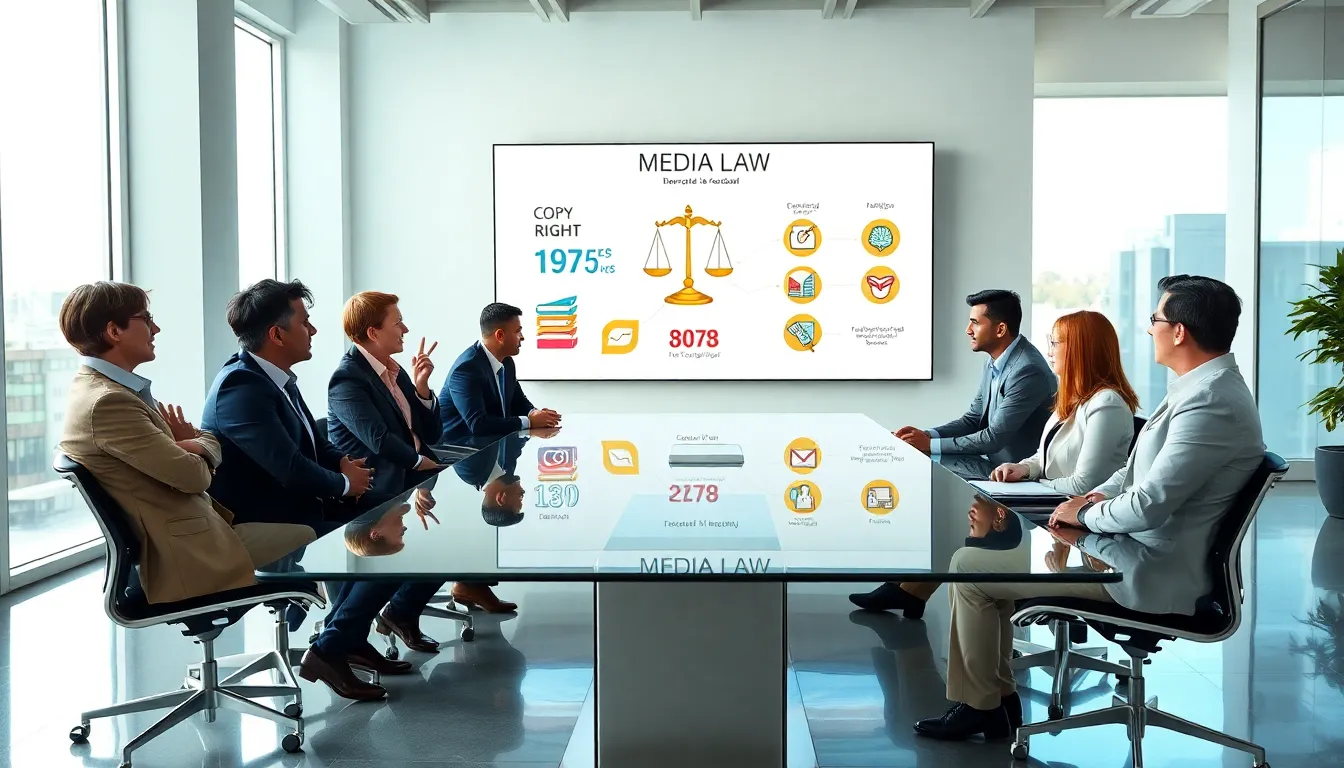Table of Contents
ToggleEver found yourself knee-deep in media law jargon with no clear way out? Or maybe you’re curious about how ethics shapes the world of journalism? You’re not alone. Just like searching for the last slice of pizza at a party, finding the right PDF on media law and ethics can feel like a scavenger hunt. But fear not, because this guide is here to help you navigate through the maze of legal and ethical considerations that govern our media landscape. Get ready for an informative yet entertaining ride.
Understanding Media Law

Media law encompasses a broad range of regulations affecting how media operates. At its core, it plays a pivotal role in protecting creators and preserving the rights of the public. Whether it’s copyright, freedom of speech, or defamation, understanding these laws can empower journalists and media professionals alike.
Key Components of Media Law
Key components include:
- Copyright and Intellectual Property: Protects original works, ensuring creators receive credit and compensation.
- Defamation: A critical area where false statements can severely impact reputation. Journalists must tread carefully here.
- Freedom of Speech: This fundamental right allows media professionals to report freely, but it comes with responsibility and limits.
These concepts are not just legal terms: they influence real-world decisions, from news reporting to creative works.
The Role Of Ethics In Media
Ethics serve as the backbone of journalism, guiding the moral compass of media outlets. When journalists abide by ethical standards, they foster trust and integrity within their communities.
Ethical Standards In Journalism
Ethical frameworks help journalists navigate tricky situations. Key standards include:
- Truthfulness: Journalists should strive for accuracy, presenting facts without distortion.
- Fairness: Offering balanced coverage is essential for maintaining public trust.
- Accountability: Journalists must own their work, admit mistakes, and correct them swiftly.
These principles aren’t just guidelines: they form the bedrock of responsible journalism.
Challenges In Media Ethics
But, adhering to these ethical standards isn’t always easy. From pressure to publish quickly to the influence of advertisers, media professionals often face tough decisions. Competing interests can lead to lapses in ethics, raising questions about integrity in the news.
Finding Free Resources On Media Law And Ethics
The digital age has made it easier than ever to access a wealth of information, including valuable resources on media law and ethics. Finding these materials doesn’t require you to expensive.
Importance Of PDF Downloads
PDF formats are particularly popular for a reason. They allow users to access comprehensive texts easily and keep them for later reference. Whether you’re a student, educator, or professional, having these resources at your fingertips makes a world of difference.
Legitimate Sources For Downloads
To find free downloadable PDFs, consider the following sources:
- University Websites: Many educational institutions publish materials for public dissemination, providing high-quality resources.
- Government Websites: Often contain legal guidelines and ethical standards relevant to media law.
- Nonprofit Organizations: Groups focused on journalism ethics frequently offer PDFs that cover best practices and case studies.
These sources not only enhance understanding but also ensure the information is credible and up-to-date.




